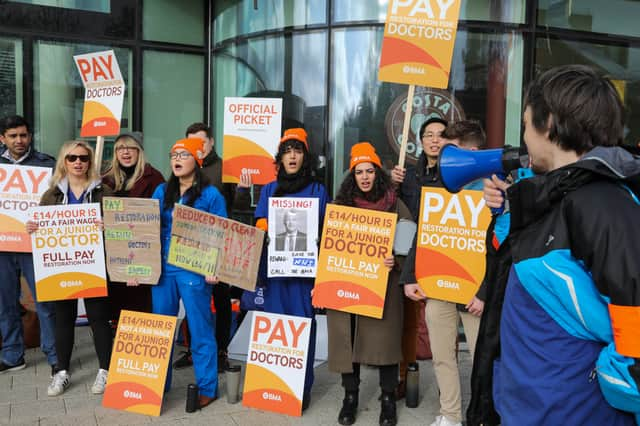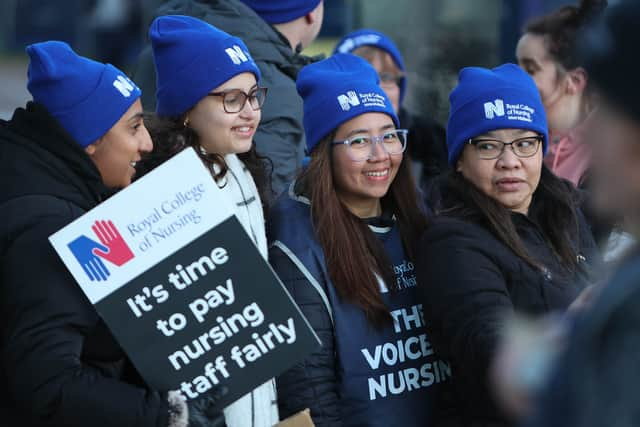Many adults will ignore potentially serious health issues – to relieve pressure on NHS


Research of 1,500 Brits revealed ailments from knee pains to chest discomfort are on people’s minds, with 35 per cent believing they have something they’d like an expert to see to.
More than half (53 per cent) described the current situation with the NHS as a ‘ticking timebomb’ – with 84 per cent believing it’s time for the government to iron out pay disputes with unions.
Advertisement
Hide AdAdvertisement
Hide AdYet, due to strikes and backlogs, 41 per cent would rather not add to the pile – and one in six admitted they’re living with a health problem because of the crisis, and 28 per cent are waiting for their issue to become more urgent before they try to get an appointment.
Jim Easton, chief executive at Practice Plus Group, which commissioned the research, said: “What’s so concerning about these figures is the fact that outside of the already long waiting lists and booked operations being cancelled - the strikes are adding to the hidden backlog of people sitting at home not wanting to come forward and trouble an NHS in crisis this winter.
“Many of these people are waiting for their concerns to become more serious before they seek help, which will result in more complex cases in the future and more pressure on urgent and emergency care. There’s still a lot of sympathy and support for junior doctors and the NHS as a whole, however, the longer the dispute goes on, the more problems are being stored up for the future.”


An overdue justice
More than a third (36 per cent) said they have a health issue that’s playing on their mind, with 55 per cent only having a vague idea of why junior doctors are on strike in January – while 19 per cent don’t have a clue.
Advertisement
Hide AdAdvertisement
Hide AdAlmost half (47 per cent) think the six-day strike between 3rd to 9th January feels too long, however, 33 per cent believe it necessary to reach a deal. Support for workers is strong with the public, with 62 per cent having sympathy for them during the ongoing pay disputes according to the data from OnePoll.com.
Seven in 10 (68 per cent) reckon they’re underpaid for what they do and 37 per cent think they’ve had to wait a long time for a pay rise.
And 36 per cent sympathise with them having to deal with sub-standard working conditions – with 63 per cent reckoning staff have been unfairly neglected over the last decade.
However, 83 per cent believe strikes are having a major impact on wait times, with 17 per cent on the waiting list for an operation or appointment.
Advertisement
Hide AdAdvertisement
Hide AdWhile 71 per cent of those waiting are fearful of it being cancelled as a result of the disputes.
Jim Easton from Practice Plus Group added: “The study found almost a fifth would be open to looking at private healthcare due to the knock-on effect from the strikes. We see this every day - we treat both NHS and private patients in our hospitals and the main difference is speed.
“NHS patients for various reasons face hurdles in getting a referral and being put on the waiting list in the first place, and naturally people are seeking lower cost, high quality private options that get them well sooner. All anyone wants is to get the NHS back to its best. The whole healthcare system is stronger when the NHS is functioning well and meeting the demands of the public."
Comment Guidelines
National World encourages reader discussion on our stories. User feedback, insights and back-and-forth exchanges add a rich layer of context to reporting. Please review our Community Guidelines before commenting.